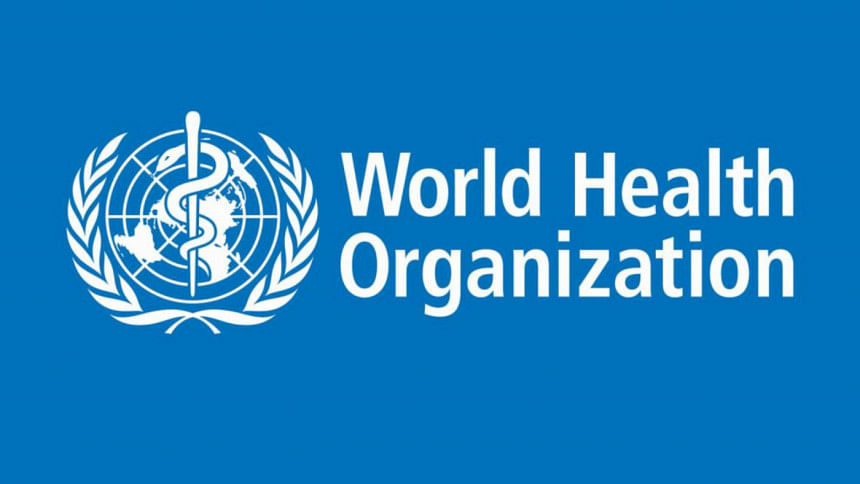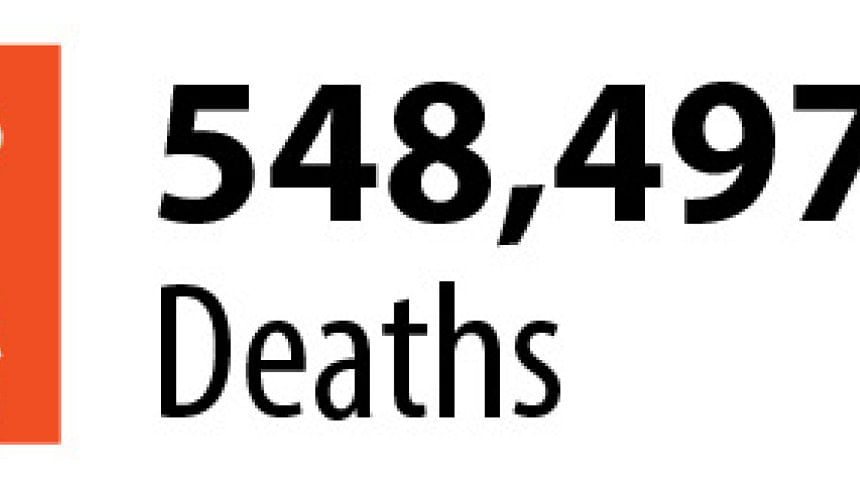US starts WHO withdrawal

Amid escalating coronavirus pandemic, the United States has started its withdrawal from the World Health Organization, the world body which is at the forefront of the war against the deadly pathogen.
The American pull-out from the WHO comes as the UN agency conceded there was "emerging evidence" coronavirus is transmitted through particles in the air, heightening fears over an illness that has already infected over 11.8 million people worldwide and caused more than 544,000 deaths.
Meanwhile, International Labour Organization yesterday warned that the pandemic has plunged the world of work into "unprecedented crisis".
Countries are struggling to keep a lid on new cases as they attempt to restart economies, with Australia's second-biggest city becoming the latest victim of a second surge after recently lifting virus restrictions.

Millions in Melbourne returned to lockdown yesterday that was forecast to run six weeks, as soaring community transmission brings more than 100 new cases daily in the city.
Meanwhile, Brazilian President Jair Bolsonaro has tested positive for the coronavirus after months of downplaying the dangers of the disease.
Bolsonaro, who said he had experienced only mild symptoms so far, said he was feeling "perfectly well" as he removed his mask in a TV interview Tuesday to announce his diagnosis.
The far-right leader has consistently ignored virus containment measures such as social distancing despite Brazil being the world's second-worst hit country with more than 66,000 dead.
Brazil accounts for the lion's share of infections in Latin America and the Caribbean, where the caseload has now surpassed three million, according to an AFP tally.
In Washington, a senior US official said the United States had informed UN Secretary-General Antonio Guterres of its intention to leave the WHO, effective July 6, 2021.
President Donald Trump has been critical of the WHO's pandemic response, accusing it of bias toward China and ignoring early signs of human-to-human transmission.
The US is the largest financial contributor to the agency, providing $400 million annually.
Joe Biden, Trump's main challenger in November's presidential election, said he would immediately reverse the decision if he wins.
The pandemic has killed more than 131,000 people in the US, by far the highest death toll of any nation, and on Tuesday the country logged a record number of new daily cases at more than 60,000, according to a tally by Johns Hopkins University.
Officials have said hospitals in some parts of the country are in danger of being overwhelmed.
Top infectious diseases expert Anthony Fauci has warned the US is still "knee-deep" in only its first coronavirus wave.
But Trump pounced on that comment Tuesday, saying America was "in a good place" and adding: "I disagree with him."
Experts are still struggling to understand Covid-19, and the WHO said it was open to new research suggesting the virus can spread through the air farther and for longer than initially believed. Scientists had lobbied for the agency to recognize the possibility.
Global leaders called for a comprehensive approach to counter the impact of the coronavirus pandemic, which International Labour Organization chief Guy Ryder said yesterday had plunged the world of work into "unprecedented crisis".
"Let's be clear: it's not a choice between health or jobs and the economy. They are interlinked: we will either win on all fronts or fail on all fronts," United Nations Secretary-General Antonio Guterres told an ILO summit that will be addressed by dozens of heads of state and government via recorded messages.
World Health Organization head Tedros Adhanom Ghebreyesus told the summit the world had a special duty to protect the millions of healthcare workers at the front line of the crisis and suffering increasing cases of infection and death, reports Reuters.
"Together we have a duty to protect those who protect us," he said.
The outlook for the global labour market in the second half of 2020 is "highly uncertain" and the forecast recovery will not be enough for employment to return to pre-pandemic levels this year, the ILO said last week.
The UN agency said the fall in global working hours was "significantly worse than previously estimated" in the first half of the year.

 For all latest news, follow The Daily Star's Google News channel.
For all latest news, follow The Daily Star's Google News channel. 



Comments